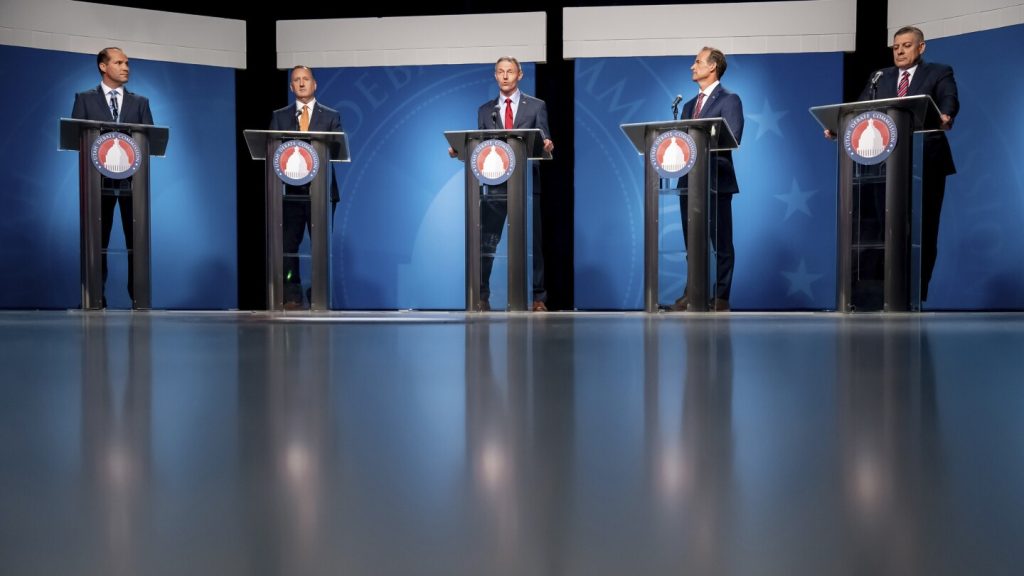Five Republican candidates vying for Utah’s only open U.S. House seat gathered for a debate where they expressed urgency in reducing federal spending, with differing views on cutting military aid to Ukraine as a means to achieve that goal. State Sen. Mike Kennedy earned the official party nod at the April GOP convention, but faces tough competition from four candidates who secured their spot on the primary ballot by gathering signatures. The winner of the Republican primary will go up against Democratic nominee Glenn Wright in November, with the GOP candidate being heavily favored in a district that has not been represented by a Democrat since 1997.
Among the Republican contenders is Stewart Peay, an attorney and former U.S. Army captain endorsed by Sen. Mitt Romney, who presented himself as more conservative-leaning in the debate. State Auditor John Dougall, known for his social media criticism of certain legislation, refrained from taking jabs at his party during the debate and focused on his anti-abortion views and auditing experience as qualifications to reduce federal spending. The candidates were split on cutting military aid to Ukraine, with Peay and Case Lawrence advocating for continued support while Kennedy and JR Bird expressed concerns about funding international wars not directly in the national security interest of the U.S.
The debate highlighted the candidates’ stances on foreign aid and military funding, with differing opinions on the best approach to the situation in Ukraine. Kennedy and Bird emphasized the need to shift focus from military funding to imposing stronger sanctions on Russia, rather than continuing to fund Ukraine’s fight against Russian invasion. Kennedy proposed seizing Russian assets as a way to hold them accountable for their actions, emphasizing the need to prioritize national security interests over international conflicts. The candidates also discussed the importance of reducing federal spending and the role of the U.S. in global affairs, with varying opinions on how to best address these issues.
The debate showcased the diversity of viewpoints within the Republican party in Utah’s 3rd District, where candidates are vying for the opportunity to represent a wide range of communities with different interests and perspectives. While Kennedy received the official party endorsement at the convention, the primary election in June will ultimately determine the Republican nominee who will face off against Democratic candidate Glenn Wright in November. The candidates presented their platforms and policy proposals, addressing key issues such as federal spending, military aid, and foreign policy, in a bid to win over voters and secure their spot in the general election.
The debate also reflected the broader political landscape in Utah, where Republican candidates are facing off in various races, including congressional seats, the U.S. Senate, governor, and attorney general positions. The crowded field of candidates in the Republican primary debates signals a competitive election season ahead, with candidates vying for support from party members and voters in a range of districts and positions. The outcome of the primary elections will set the stage for the general election in November, where voters will decide who will represent them in key positions of power at the state and federal levels.


